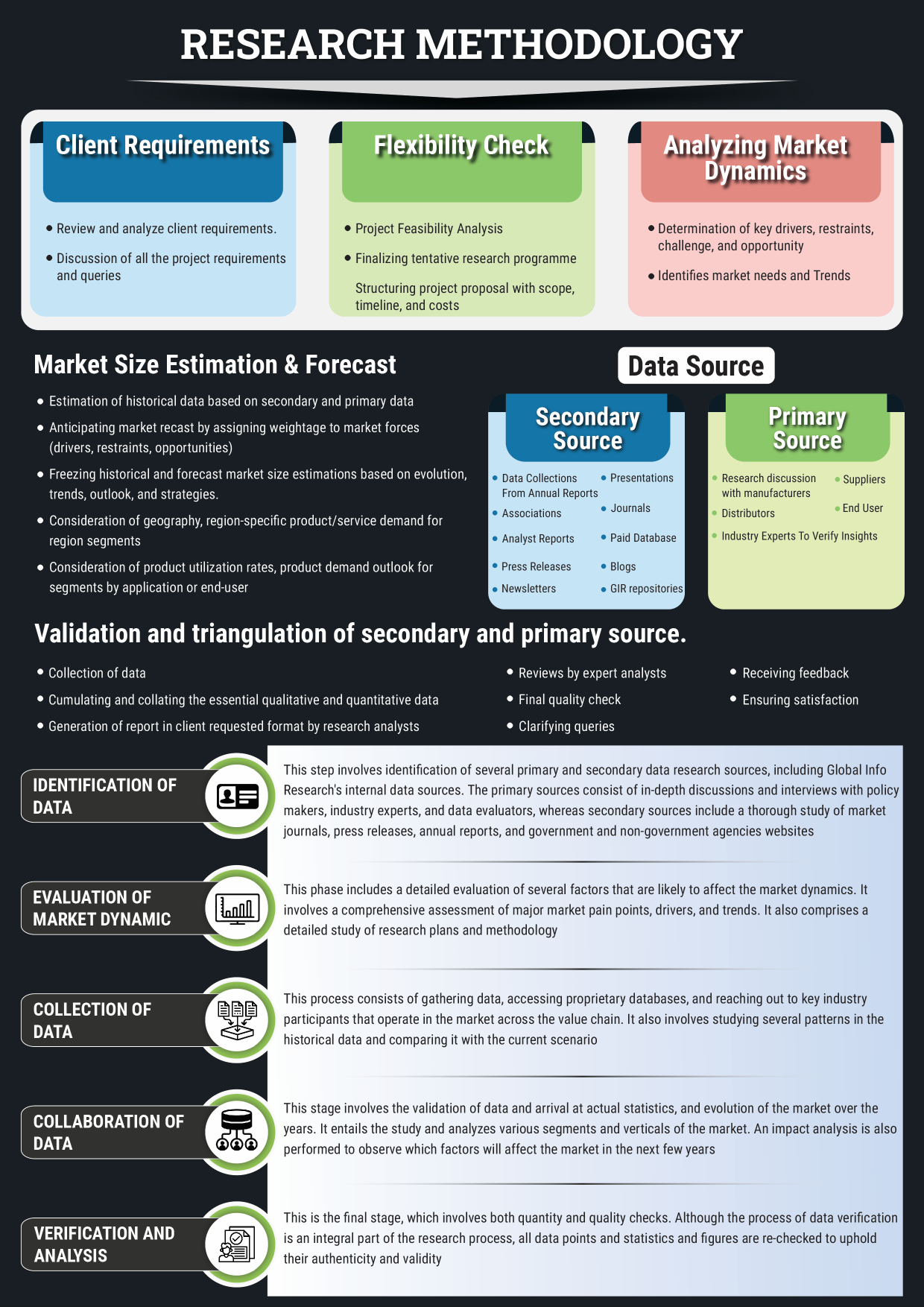End-stage renal failure, also known as end-stage renal disease (ESRD), can be caused by an underlying health problem, often diabetes or high blood pressure. ESRD is the final, permanent stage of chronic kidney disease, where kidney function has declined to the point that the kidneys can no longer function on their own. When the kidneys can no longer filter the blood of waste and extra fluid, patients need dialysis or a kidney transplant to survive.
Fresenius is one of the most important global key players of the end stage renal disease treatment, holds about 20% of shares of the global end stage renal disease treatment market, other key players include DaVita, Baxter, etc. North America is the largest market, occupied for about 40 percent, followed by the Asia Pacific. In terms of type, hemodialysis is the largest segment, with a share of about 70%, and in terms of application, the kidney dialysis centers segment holds a share of over 60 percent.
This report is a detailed and comprehensive analysis for global End Stage Renal Disease Treatment market. Both quantitative and qualitative analyses are presented by company, by region & country, by Type and by Application. As the market is constantly changing, this report explores the competition, supply and demand trends, as well as key factors that contribute to its changing demands across many markets. Company profiles and product examples of selected competitors, along with market share estimates of some of the selected leaders for the year 2023, are provided.
Key Features:
Global End Stage Renal Disease Treatment market size and forecasts, in consumption value ($ Million), 2018-2029
Global End Stage Renal Disease Treatment market size and forecasts by region and country, in consumption value ($ Million), 2018-2029
Global End Stage Renal Disease Treatment market size and forecasts, by Type and by Application, in consumption value ($ Million), 2018-2029
Global End Stage Renal Disease Treatment market shares of main players, in revenue ($ Million), 2018-2023
The Primary Objectives in This Report Are:
To determine the size of the total market opportunity of global and key countries
To assess the growth potential for End Stage Renal Disease Treatment
To forecast future growth in each product and end-use market
To assess competitive factors affecting the marketplace
This report profiles key players in the global End Stage Renal Disease Treatment market based on the following parameters - company overview, production, value, price, gross margin, product portfolio, geographical presence, and key developments.
This report also provides key insights about market drivers, restraints, opportunities, new product launches or approvals, COVID-19 and Russia-Ukraine War Influence.
Key Market Players
Fresenius
DaVita
Baxter
Nipro
B. Braun
Asahi Kasei
Nikkiso
WEGO
Newsol
Mayo Clinic
Guangdong Biolight
Medtronic
Sanxin Medtec
Jafron Biomedical
SWS Hemodialysis Care
Tianyi Medical
Segmentation By Type
Hemodialysis
Peritoneal Dialysis
Kidney Transplantation
Segmentation By Application
Hospitals
Kidney Dialysis Centers
At Homes
Others
Segmentation By Region
North America (United States, Canada, and Mexico)
Europe (Germany, France, UK, Russia, Italy, and Rest of Europe)
Asia-Pacific (China, Japan, South Korea, India, Southeast Asia, Australia and Rest of Asia-Pacific)
South America (Brazil, Argentina and Rest of South America)
Middle East & Africa (Turkey, Saudi Arabia, UAE, Rest of Middle East & Africa)
Market SWOT Analysis
What are the strengths of the End Stage Renal Disease (ESRD) Treatment Market in 2025?
The ESRD treatment market benefits from advanced dialysis technologies, improving patient outcomes and quality of life. Increasing demand for home dialysis options and the growing healthcare infrastructure also support market growth. Additionally, new drug therapies and improved access to healthcare services are expanding treatment options.
What are the weaknesses in the ESRD Treatment Market in 2025?
A significant weakness is the high cost of treatments, particularly dialysis, which can limit access in lower-income regions. The complexity and dependency on long-term treatments also pose challenges for patient adherence and healthcare system sustainability. There is also a shortage of skilled professionals for handling specialized ESRD care.
What opportunities exist in the ESRD Treatment Market in 2025?
Opportunities lie in the development of innovative therapies, such as gene therapy and kidney transplantation advancements, which could dramatically improve patient survival rates. Additionally, increasing awareness and government support for kidney disease management and healthcare innovation provide significant growth prospects. The rise of telemedicine and remote monitoring also presents new avenues for patient management and care delivery.
What are the threats to the ESRD Treatment Market in 2025?
The threat of rising healthcare costs and the potential for policy changes in reimbursement rates could impact the market's growth. Economic downturns or budget cuts to healthcare programs might also reduce patient access to treatments. Additionally, competition from alternative treatment methods and emerging technologies could disrupt the market dynamics.
Market PESTEL Analysis
What political factors impact the ESRD Treatment Market in 2025?
Government policies and healthcare regulations play a significant role in shaping the ESRD market. Reimbursement policies, government-funded healthcare programs, and regulations around dialysis clinics and transplantation can directly affect market accessibility and growth. Political stability also influences funding for healthcare research and development.
How do economic factors influence the ESRD Treatment Market in 2025?
Economic conditions can have a considerable effect on the affordability of ESRD treatments. In times of economic downturn, healthcare budgets may be cut, limiting access to treatment for patients, particularly in lower-income populations. However, advancements in technology may also lower treatment costs over time, making care more affordable.
What social factors affect the ESRD Treatment Market in 2025?
Increasing awareness about kidney disease and healthy lifestyle choices is contributing to better prevention and early diagnosis, leading to greater demand for ESRD treatment. Social acceptance of home dialysis and telemedicine is also growing, allowing for more convenient treatment options. However, there are challenges with patient adherence to long-term treatment protocols.
How do technological factors shape the ESRD Treatment Market in 2025?
Technological innovation in dialysis machines, wearable dialysis devices, and remote monitoring solutions are transforming the market. The development of gene therapies, stem cell treatments, and better drug therapies is also improving patient outcomes. Technology enables personalized care, making treatments more efficient and enhancing overall patient management.
What environmental factors influence the ESRD Treatment Market in 2025?
Environmental sustainability concerns are shaping the ESRD market, particularly in terms of the disposal of medical waste, water usage in dialysis treatments, and the carbon footprint of healthcare operations. Pressure to adopt more eco-friendly practices and reduce environmental impacts is likely to drive innovation in more sustainable treatment methods.
What legal factors impact the ESRD Treatment Market in 2025?
Legal factors such as patent laws, intellectual property rights, and healthcare regulations governing dialysis clinics and transplantations affect the ESRD market. Compliance with health and safety standards is crucial for treatment providers, and potential legal liabilities in cases of complications or poor treatment outcomes could pose risks to market players.
Market SIPOC Analysis
Who are the suppliers in the ESRD Treatment Market in 2025?
Suppliers in the ESRD treatment market include manufacturers of dialysis machines, medical devices, and pharmaceuticals, such as dialysis solutions and kidney disease drugs. Healthcare providers, including hospitals and specialized clinics, also play a key role in supplying treatments to patients. Research and development companies contribute by creating new therapies and technologies.
What are the inputs required for the ESRD Treatment Market in 2025?
The primary inputs include advanced medical technologies (e.g., dialysis machines, monitoring systems), pharmaceuticals (e.g., erythropoiesis-stimulating agents, phosphate binders), and human resources (e.g., nephrologists, nurses, healthcare technicians). Additionally, significant investments in research, clinical trials, and healthcare infrastructure are essential to support treatment advancements.
What are the processes involved in the ESRD Treatment Market in 2025?
Key processes involve the diagnosis of kidney failure, determining appropriate treatment methods (dialysis or kidney transplantation), administering treatments (in-clinic or home-based dialysis), and ongoing monitoring of patients. The continuous development and approval of new drug therapies and technologies are also critical processes within the market.
What are the outputs of the ESRD Treatment Market in 2025?
The outputs are improved patient outcomes, including better survival rates and quality of life for individuals with end-stage renal disease. This includes successful dialysis treatments, kidney transplants, and access to innovative drug therapies. Additionally, advancements in patient care models, such as home dialysis and telemedicine solutions, are key outputs of the market.
Who are the customers in the ESRD Treatment Market in 2025?
Customers in the ESRD treatment market include patients diagnosed with end-stage renal disease, healthcare providers (e.g., hospitals, clinics), insurance companies, and government healthcare programs. Families of patients and caregivers also play an important role in seeking treatment solutions for ESRD patients.
Market Porter's Five Forces
How strong is the threat of new entrants in the ESRD Treatment Market in 2025?
The threat of new entrants is relatively low due to the high capital investment required to develop advanced dialysis technologies, medical devices, and pharmaceuticals. Additionally, the market is highly regulated, with strict healthcare standards and approval processes, making it difficult for new companies to break into the market without significant expertise and resources.
How intense is the bargaining power of suppliers in the ESRD Treatment Market in 2025?
The bargaining power of suppliers is moderate to high. Key suppliers of medical devices, dialysis solutions, and pharmaceuticals have significant influence because they provide essential products for ESRD treatment. However, as the market grows and more suppliers emerge, competition can help reduce their bargaining power. Still, established suppliers with advanced technologies maintain a stronger position.
How strong is the bargaining power of buyers in the ESRD Treatment Market in 2025?
The bargaining power of buyers, including healthcare providers and insurance companies, is moderate. While healthcare providers often have multiple treatment options, they are constrained by regulatory and clinical guidelines. Insurance companies can negotiate costs for treatments, but the high demand for dialysis services and limited alternatives keep the bargaining power of individual buyers relatively low.
What is the threat of substitute products or services in the ESRD Treatment Market in 2025?
The threat of substitutes is moderate. While kidney transplantation is the preferred long-term treatment, it is limited by the availability of donors and the risk of organ rejection. Additionally, new therapies like gene treatments and wearable dialysis devices are emerging, but they are still in early stages and not yet widely available, reducing their immediate threat as substitutes.
How intense is the competitive rivalry in the ESRD Treatment Market in 2025?
Competitive rivalry in the ESRD treatment market is high. Several established companies dominate the market, offering a range of dialysis products and services. The growth in innovation, such as home dialysis and new pharmaceuticals, intensifies competition as companies strive to provide better, more cost-effective treatment options. With large market potential, firms are heavily investing in R&D to maintain or grow their market share.
Market Upstream Analysis
What are the key raw materials required for ESRD treatment in 2025?
Key raw materials include medical-grade plastics and metals for dialysis machines, specialized filters, membranes, and components for hemodialysis systems, as well as active pharmaceutical ingredients (APIs) for drugs like erythropoiesis-stimulating agents and phosphate binders. High-quality water purification systems are also essential for dialysis treatments.
Who are the key suppliers in the upstream ESRD treatment market in 2025?
Suppliers in the upstream ESRD market include manufacturers of medical devices, such as dialysis machines, tubing, and specialized filters, as well as pharmaceutical companies providing drugs for ESRD management. Raw material suppliers for medical device production and pharmaceutical ingredient manufacturers also play crucial roles in the supply chain.
What are the technological factors affecting upstream in the ESRD treatment market in 2025?
Technological advancements in dialysis machines, drug delivery systems, and patient monitoring technologies are shaping upstream operations. Innovations such as more efficient dialysis filters, wearable dialysis devices, and bioengineering techniques for drug formulations are critical. Additionally, breakthroughs in biotechnology for gene therapies and stem cell treatments are impacting upstream supply chain demands.
What regulatory factors affect upstream suppliers in the ESRD treatment market in 2025?
Upstream suppliers are significantly impacted by regulatory requirements set by healthcare authorities like the FDA and EMA for medical devices, pharmaceuticals, and treatment methods. Compliance with manufacturing standards for medical products, drug approval processes, and environmental guidelines for waste management in dialysis treatments are all crucial factors for upstream operations.
How do market demand and competition influence upstream activities in the ESRD treatment market in 2025?
Growing demand for effective ESRD treatments is pushing upstream suppliers to innovate and expand their offerings. Increased competition among suppliers, especially in the dialysis device and pharmaceutical markets, drives both cost reductions and product advancements. This competition encourages collaboration between medical device manufacturers, pharmaceutical companies, and healthcare providers to meet patient needs effectively.
Market Midstream Analysis
What role do healthcare providers play in the ESRD treatment market in 2025?
Healthcare providers, including hospitals, dialysis centers, and nephrology clinics, are crucial in administering ESRD treatments. They provide hemodialysis, peritoneal dialysis, and kidney transplant services, managing patient care and ensuring treatment compliance. Healthcare professionals, such as nephrologists and dialysis nurses, also play a significant role in the ongoing management of ESRD patients.
How does patient care management influence the midstream ESRD treatment market in 2025?
Patient care management is central to the midstream ESRD treatment market. As treatment options become more personalized, the focus shifts to improving patient outcomes through tailored dialysis regimens, nutritional support, and continuous monitoring. Home dialysis and telemedicine have become integral, allowing for more flexible and efficient care models, reducing hospital visits, and improving patient quality of life.
What are the logistical challenges in the midstream ESRD treatment market in 2025?
Logistical challenges include the distribution of dialysis supplies, pharmaceuticals, and medical devices to treatment centers and homes. Ensuring timely delivery of specialized products, like dialysis machines and consumables, is critical. Additionally, the coordination of organ transplants and managing patient data for personalized treatment plans presents logistical complexities in the midstream segment.
How do insurance companies impact the midstream ESRD treatment market in 2025?
Insurance companies are a significant force in the midstream ESRD treatment market, as they influence the affordability and accessibility of treatments. The reimbursement rates they offer for dialysis, pharmaceuticals, and kidney transplants affect the treatment options available to patients. Negotiations with insurance companies also influence the financial viability of various care models, such as home dialysis versus in-clinic treatment.
What are the key partnerships in the midstream ESRD treatment market in 2025?
Key partnerships in the midstream ESRD treatment market involve collaborations between healthcare providers, pharmaceutical companies, medical device manufacturers, and insurance companies. These partnerships help improve access to treatments, streamline care processes, and enhance patient outcomes. Additionally, partnerships with research institutions support the development of new technologies and therapies for ESRD management.
Market Downstream Analysis
How do patients influence the downstream ESRD treatment market in 2025?
Patients are central to the downstream ESRD treatment market, as they directly drive demand for dialysis treatments, pharmaceuticals, and kidney transplants. Patient preferences for treatment types—such as home dialysis versus in-clinic care—impact service delivery models. Additionally, patient adherence to treatment regimens and their outcomes influence market trends and the development of new care options.
What role do healthcare providers play in the downstream ESRD treatment market in 2025?
Healthcare providers in the downstream market are responsible for delivering ESRD treatment services to patients. This includes managing dialysis sessions, administering medications, coordinating kidney transplants, and providing post-treatment care. Providers also ensure patient education, support services, and long-term monitoring, influencing the success and accessibility of treatment options.
How do pharmaceutical companies impact the downstream ESRD treatment market in 2025?
Pharmaceutical companies play a significant role by providing essential medications for ESRD management, such as erythropoiesis-stimulating agents, phosphate binders, and drugs for managing comorbidities like hypertension. These drugs improve patient outcomes, enhance the quality of life, and reduce the need for more frequent hospital visits, making them crucial to downstream treatment strategies.
What are the challenges faced by patients in the downstream ESRD treatment market in 2025?
Patients in the ESRD treatment market face several challenges, including the high cost of treatment, the complexity of long-term care regimens, and potential complications from dialysis or transplant procedures. Access to treatment may be limited in some regions, and the physical and emotional burden of ongoing therapy can affect patient quality of life, making adherence to treatment more difficult.
How does technology influence the downstream ESRD treatment market in 2025?
Technology is transforming the downstream ESRD treatment market through innovations like wearable dialysis devices, telemedicine platforms, and remote monitoring tools. These technologies improve treatment convenience, reduce hospital visits, and enhance patient monitoring. They also support personalized care, helping healthcare providers better manage individual patient needs, ultimately improving clinical outcomes.
Chapter 1, to describe End Stage Renal Disease Treatment product scope, market overview, market estimation caveats and base year.
Chapter 2, to profile the top players of End Stage Renal Disease Treatment, with revenue, gross margin and global market share of End Stage Renal Disease Treatment from 2018 to 2023.
Chapter 3, the End Stage Renal Disease Treatment competitive situation, revenue and global market share of top players are analyzed emphatically by landscape contrast.
Chapter 4 and 5, to segment the market size by Type and application, with consumption value and growth rate by Type, application, from 2018 to 2029.
Chapter 6, 7, 8, 9, and 10, to break the market size data at the country level, with revenue and market share for key countries in the world, from 2018 to 2023.and End Stage Renal Disease Treatment market forecast, by regions, type and application, with consumption value, from 2024 to 2029.
Chapter 11, market dynamics, drivers, restraints, trends, Porters Five Forces analysis, and Influence of COVID-19 and Russia-Ukraine War
Chapter 12, the key raw materials and key suppliers, and industry chain of End Stage Renal Disease Treatment.
Chapter 13, to describe End Stage Renal Disease Treatment research findings and conclusion.
1 Market Overview
1.1 Product Overview and Scope of End Stage Renal Disease Treatment
1.2 Market Estimation Caveats and Base Year
1.3 Classification of End Stage Renal Disease Treatment by Type
1.3.1 Overview: Global End Stage Renal Disease Treatment Market Size by Type: 2018 Versus 2022 Versus 2029
1.3.2 Global End Stage Renal Disease Treatment Consumption Value Market Share by Type in 2022
1.3.3 Hemodialysis
1.3.4 Peritoneal Dialysis
1.3.5 Kidney Transplantation
1.4 Global End Stage Renal Disease Treatment Market by Application
1.4.1 Overview: Global End Stage Renal Disease Treatment Market Size by Application: 2018 Versus 2022 Versus 2029
1.4.2 Hospitals
1.4.3 Kidney Dialysis Centers
1.4.4 At Homes
1.4.5 Others
1.5 Global End Stage Renal Disease Treatment Market Size & Forecast
1.6 Global End Stage Renal Disease Treatment Market Size and Forecast by Region
1.6.1 Global End Stage Renal Disease Treatment Market Size by Region: 2018 VS 2022 VS 2029
1.6.2 Global End Stage Renal Disease Treatment Market Size by Region, (2018-2029)
1.6.3 North America End Stage Renal Disease Treatment Market Size and Prospect (2018-2029)
1.6.4 Europe End Stage Renal Disease Treatment Market Size and Prospect (2018-2029)
1.6.5 Asia-Pacific End Stage Renal Disease Treatment Market Size and Prospect (2018-2029)
1.6.6 South America End Stage Renal Disease Treatment Market Size and Prospect (2018-2029)
1.6.7 Middle East and Africa End Stage Renal Disease Treatment Market Size and Prospect (2018-2029)
2 Company Profiles
2.1 Fresenius
2.1.1 Fresenius Details
2.1.2 Fresenius Major Business
2.1.3 Fresenius End Stage Renal Disease Treatment Product and Solutions
2.1.4 Fresenius End Stage Renal Disease Treatment Revenue, Gross Margin and Market Share (2018-2023)
2.1.5 Fresenius Recent Developments and Future Plans
2.2 DaVita
2.2.1 DaVita Details
2.2.2 DaVita Major Business
2.2.3 DaVita End Stage Renal Disease Treatment Product and Solutions
2.2.4 DaVita End Stage Renal Disease Treatment Revenue, Gross Margin and Market Share (2018-2023)
2.2.5 DaVita Recent Developments and Future Plans
2.3 Baxter
2.3.1 Baxter Details
2.3.2 Baxter Major Business
2.3.3 Baxter End Stage Renal Disease Treatment Product and Solutions
2.3.4 Baxter End Stage Renal Disease Treatment Revenue, Gross Margin and Market Share (2018-2023)
2.3.5 Baxter Recent Developments and Future Plans
2.4 Nipro
2.4.1 Nipro Details
2.4.2 Nipro Major Business
2.4.3 Nipro End Stage Renal Disease Treatment Product and Solutions
2.4.4 Nipro End Stage Renal Disease Treatment Revenue, Gross Margin and Market Share (2018-2023)
2.4.5 Nipro Recent Developments and Future Plans
2.5 B. Braun
2.5.1 B. Braun Details
2.5.2 B. Braun Major Business
2.5.3 B. Braun End Stage Renal Disease Treatment Product and Solutions
2.5.4 B. Braun End Stage Renal Disease Treatment Revenue, Gross Margin and Market Share (2018-2023)
2.5.5 B. Braun Recent Developments and Future Plans
2.6 Asahi Kasei
2.6.1 Asahi Kasei Details
2.6.2 Asahi Kasei Major Business
2.6.3 Asahi Kasei End Stage Renal Disease Treatment Product and Solutions
2.6.4 Asahi Kasei End Stage Renal Disease Treatment Revenue, Gross Margin and Market Share (2018-2023)
2.6.5 Asahi Kasei Recent Developments and Future Plans
2.7 Nikkiso
2.7.1 Nikkiso Details
2.7.2 Nikkiso Major Business
2.7.3 Nikkiso End Stage Renal Disease Treatment Product and Solutions
2.7.4 Nikkiso End Stage Renal Disease Treatment Revenue, Gross Margin and Market Share (2018-2023)
2.7.5 Nikkiso Recent Developments and Future Plans
2.8 WEGO
2.8.1 WEGO Details
2.8.2 WEGO Major Business
2.8.3 WEGO End Stage Renal Disease Treatment Product and Solutions
2.8.4 WEGO End Stage Renal Disease Treatment Revenue, Gross Margin and Market Share (2018-2023)
2.8.5 WEGO Recent Developments and Future Plans
2.9 Newsol
2.9.1 Newsol Details
2.9.2 Newsol Major Business
2.9.3 Newsol End Stage Renal Disease Treatment Product and Solutions
2.9.4 Newsol End Stage Renal Disease Treatment Revenue, Gross Margin and Market Share (2018-2023)
2.9.5 Newsol Recent Developments and Future Plans
2.10 Mayo Clinic
2.10.1 Mayo Clinic Details
2.10.2 Mayo Clinic Major Business
2.10.3 Mayo Clinic End Stage Renal Disease Treatment Product and Solutions
2.10.4 Mayo Clinic End Stage Renal Disease Treatment Revenue, Gross Margin and Market Share (2018-2023)
2.10.5 Mayo Clinic Recent Developments and Future Plans
2.11 Guangdong Biolight
2.11.1 Guangdong Biolight Details
2.11.2 Guangdong Biolight Major Business
2.11.3 Guangdong Biolight End Stage Renal Disease Treatment Product and Solutions
2.11.4 Guangdong Biolight End Stage Renal Disease Treatment Revenue, Gross Margin and Market Share (2018-2023)
2.11.5 Guangdong Biolight Recent Developments and Future Plans
2.12 Medtronic
2.12.1 Medtronic Details
2.12.2 Medtronic Major Business
2.12.3 Medtronic End Stage Renal Disease Treatment Product and Solutions
2.12.4 Medtronic End Stage Renal Disease Treatment Revenue, Gross Margin and Market Share (2018-2023)
2.12.5 Medtronic Recent Developments and Future Plans
2.13 Sanxin Medtec
2.13.1 Sanxin Medtec Details
2.13.2 Sanxin Medtec Major Business
2.13.3 Sanxin Medtec End Stage Renal Disease Treatment Product and Solutions
2.13.4 Sanxin Medtec End Stage Renal Disease Treatment Revenue, Gross Margin and Market Share (2018-2023)
2.13.5 Sanxin Medtec Recent Developments and Future Plans
2.14 Jafron Biomedical
2.14.1 Jafron Biomedical Details
2.14.2 Jafron Biomedical Major Business
2.14.3 Jafron Biomedical End Stage Renal Disease Treatment Product and Solutions
2.14.4 Jafron Biomedical End Stage Renal Disease Treatment Revenue, Gross Margin and Market Share (2018-2023)
2.14.5 Jafron Biomedical Recent Developments and Future Plans
2.15 SWS Hemodialysis Care
2.15.1 SWS Hemodialysis Care Details
2.15.2 SWS Hemodialysis Care Major Business
2.15.3 SWS Hemodialysis Care End Stage Renal Disease Treatment Product and Solutions
2.15.4 SWS Hemodialysis Care End Stage Renal Disease Treatment Revenue, Gross Margin and Market Share (2018-2023)
2.15.5 SWS Hemodialysis Care Recent Developments and Future Plans
2.16 Tianyi Medical
2.16.1 Tianyi Medical Details
2.16.2 Tianyi Medical Major Business
2.16.3 Tianyi Medical End Stage Renal Disease Treatment Product and Solutions
2.16.4 Tianyi Medical End Stage Renal Disease Treatment Revenue, Gross Margin and Market Share (2018-2023)
2.16.5 Tianyi Medical Recent Developments and Future Plans
3 Market Competition, by Players
3.1 Global End Stage Renal Disease Treatment Revenue and Share by Players (2018-2023)
3.2 Market Share Analysis (2022)
3.2.1 Market Share of End Stage Renal Disease Treatment by Company Revenue
3.2.2 Top 3 End Stage Renal Disease Treatment Players Market Share in 2022
3.2.3 Top 6 End Stage Renal Disease Treatment Players Market Share in 2022
3.3 End Stage Renal Disease Treatment Market: Overall Company Footprint Analysis
3.3.1 End Stage Renal Disease Treatment Market: Region Footprint
3.3.2 End Stage Renal Disease Treatment Market: Company Product Type Footprint
3.3.3 End Stage Renal Disease Treatment Market: Company Product Application Footprint
3.4 New Market Entrants and Barriers to Market Entry
3.5 Mergers, Acquisition, Agreements, and Collaborations
4 Market Size Segment by Type
4.1 Global End Stage Renal Disease Treatment Consumption Value and Market Share by Type (2018-2023)
4.2 Global End Stage Renal Disease Treatment Market Forecast by Type (2024-2029)
5 Market Size Segment by Application
5.1 Global End Stage Renal Disease Treatment Consumption Value Market Share by Application (2018-2023)
5.2 Global End Stage Renal Disease Treatment Market Forecast by Application (2024-2029)
6 North America
6.1 North America End Stage Renal Disease Treatment Consumption Value by Type (2018-2029)
6.2 North America End Stage Renal Disease Treatment Consumption Value by Application (2018-2029)
6.3 North America End Stage Renal Disease Treatment Market Size by Country
6.3.1 North America End Stage Renal Disease Treatment Consumption Value by Country (2018-2029)
6.3.2 United States End Stage Renal Disease Treatment Market Size and Forecast (2018-2029)
6.3.3 Canada End Stage Renal Disease Treatment Market Size and Forecast (2018-2029)
6.3.4 Mexico End Stage Renal Disease Treatment Market Size and Forecast (2018-2029)
7 Europe
7.1 Europe End Stage Renal Disease Treatment Consumption Value by Type (2018-2029)
7.2 Europe End Stage Renal Disease Treatment Consumption Value by Application (2018-2029)
7.3 Europe End Stage Renal Disease Treatment Market Size by Country
7.3.1 Europe End Stage Renal Disease Treatment Consumption Value by Country (2018-2029)
7.3.2 Germany End Stage Renal Disease Treatment Market Size and Forecast (2018-2029)
7.3.3 France End Stage Renal Disease Treatment Market Size and Forecast (2018-2029)
7.3.4 United Kingdom End Stage Renal Disease Treatment Market Size and Forecast (2018-2029)
7.3.5 Russia End Stage Renal Disease Treatment Market Size and Forecast (2018-2029)
7.3.6 Italy End Stage Renal Disease Treatment Market Size and Forecast (2018-2029)
8 Asia-Pacific
8.1 Asia-Pacific End Stage Renal Disease Treatment Consumption Value by Type (2018-2029)
8.2 Asia-Pacific End Stage Renal Disease Treatment Consumption Value by Application (2018-2029)
8.3 Asia-Pacific End Stage Renal Disease Treatment Market Size by Region
8.3.1 Asia-Pacific End Stage Renal Disease Treatment Consumption Value by Region (2018-2029)
8.3.2 China End Stage Renal Disease Treatment Market Size and Forecast (2018-2029)
8.3.3 Japan End Stage Renal Disease Treatment Market Size and Forecast (2018-2029)
8.3.4 South Korea End Stage Renal Disease Treatment Market Size and Forecast (2018-2029)
8.3.5 India End Stage Renal Disease Treatment Market Size and Forecast (2018-2029)
8.3.6 Southeast Asia End Stage Renal Disease Treatment Market Size and Forecast (2018-2029)
8.3.7 Australia End Stage Renal Disease Treatment Market Size and Forecast (2018-2029)
9 South America
9.1 South America End Stage Renal Disease Treatment Consumption Value by Type (2018-2029)
9.2 South America End Stage Renal Disease Treatment Consumption Value by Application (2018-2029)
9.3 South America End Stage Renal Disease Treatment Market Size by Country
9.3.1 South America End Stage Renal Disease Treatment Consumption Value by Country (2018-2029)
9.3.2 Brazil End Stage Renal Disease Treatment Market Size and Forecast (2018-2029)
9.3.3 Argentina End Stage Renal Disease Treatment Market Size and Forecast (2018-2029)
10 Middle East & Africa
10.1 Middle East & Africa End Stage Renal Disease Treatment Consumption Value by Type (2018-2029)
10.2 Middle East & Africa End Stage Renal Disease Treatment Consumption Value by Application (2018-2029)
10.3 Middle East & Africa End Stage Renal Disease Treatment Market Size by Country
10.3.1 Middle East & Africa End Stage Renal Disease Treatment Consumption Value by Country (2018-2029)
10.3.2 Turkey End Stage Renal Disease Treatment Market Size and Forecast (2018-2029)
10.3.3 Saudi Arabia End Stage Renal Disease Treatment Market Size and Forecast (2018-2029)
10.3.4 UAE End Stage Renal Disease Treatment Market Size and Forecast (2018-2029)
11 Market Dynamics
11.1 End Stage Renal Disease Treatment Market Drivers
11.2 End Stage Renal Disease Treatment Market Restraints
11.3 End Stage Renal Disease Treatment Trends Analysis
11.4 Porters Five Forces Analysis
11.4.1 Threat of New Entrants
11.4.2 Bargaining Power of Suppliers
11.4.3 Bargaining Power of Buyers
11.4.4 Threat of Substitutes
11.4.5 Competitive Rivalry
11.5 Influence of COVID-19 and Russia-Ukraine War
11.5.1 Influence of COVID-19
11.5.2 Influence of Russia-Ukraine War
12 Industry Chain Analysis
12.1 End Stage Renal Disease Treatment Industry Chain
12.2 End Stage Renal Disease Treatment Upstream Analysis
12.3 End Stage Renal Disease Treatment Midstream Analysis
12.4 End Stage Renal Disease Treatment Downstream Analysis
13 Research Findings and Conclusion
14 Appendix
14.1 Methodology
14.2 Research Process and Data Source
14.3 Disclaimer
List of Tables
Table 1. Global End Stage Renal Disease Treatment Consumption Value by Type, (USD Million), 2018 & 2022 & 2029
Table 2. Global End Stage Renal Disease Treatment Consumption Value by Application, (USD Million), 2018 & 2022 & 2029
Table 3. Global End Stage Renal Disease Treatment Consumption Value by Region (2018-2023) & (USD Million)
Table 4. Global End Stage Renal Disease Treatment Consumption Value by Region (2024-2029) & (USD Million)
Table 5. Fresenius Company Information, Head Office, and Major Competitors
Table 6. Fresenius Major Business
Table 7. Fresenius End Stage Renal Disease Treatment Product and Solutions
Table 8. Fresenius End Stage Renal Disease Treatment Revenue (USD Million), Gross Margin and Market Share (2018-2023)
Table 9. Fresenius Recent Developments and Future Plans
Table 10. DaVita Company Information, Head Office, and Major Competitors
Table 11. DaVita Major Business
Table 12. DaVita End Stage Renal Disease Treatment Product and Solutions
Table 13. DaVita End Stage Renal Disease Treatment Revenue (USD Million), Gross Margin and Market Share (2018-2023)
Table 14. DaVita Recent Developments and Future Plans
Table 15. Baxter Company Information, Head Office, and Major Competitors
Table 16. Baxter Major Business
Table 17. Baxter End Stage Renal Disease Treatment Product and Solutions
Table 18. Baxter End Stage Renal Disease Treatment Revenue (USD Million), Gross Margin and Market Share (2018-2023)
Table 19. Baxter Recent Developments and Future Plans
Table 20. Nipro Company Information, Head Office, and Major Competitors
Table 21. Nipro Major Business
Table 22. Nipro End Stage Renal Disease Treatment Product and Solutions
Table 23. Nipro End Stage Renal Disease Treatment Revenue (USD Million), Gross Margin and Market Share (2018-2023)
Table 24. Nipro Recent Developments and Future Plans
Table 25. B. Braun Company Information, Head Office, and Major Competitors
Table 26. B. Braun Major Business
Table 27. B. Braun End Stage Renal Disease Treatment Product and Solutions
Table 28. B. Braun End Stage Renal Disease Treatment Revenue (USD Million), Gross Margin and Market Share (2018-2023)
Table 29. B. Braun Recent Developments and Future Plans
Table 30. Asahi Kasei Company Information, Head Office, and Major Competitors
Table 31. Asahi Kasei Major Business
Table 32. Asahi Kasei End Stage Renal Disease Treatment Product and Solutions
Table 33. Asahi Kasei End Stage Renal Disease Treatment Revenue (USD Million), Gross Margin and Market Share (2018-2023)
Table 34. Asahi Kasei Recent Developments and Future Plans
Table 35. Nikkiso Company Information, Head Office, and Major Competitors
Table 36. Nikkiso Major Business
Table 37. Nikkiso End Stage Renal Disease Treatment Product and Solutions
Table 38. Nikkiso End Stage Renal Disease Treatment Revenue (USD Million), Gross Margin and Market Share (2018-2023)
Table 39. Nikkiso Recent Developments and Future Plans
Table 40. WEGO Company Information, Head Office, and Major Competitors
Table 41. WEGO Major Business
Table 42. WEGO End Stage Renal Disease Treatment Product and Solutions
Table 43. WEGO End Stage Renal Disease Treatment Revenue (USD Million), Gross Margin and Market Share (2018-2023)
Table 44. WEGO Recent Developments and Future Plans
Table 45. Newsol Company Information, Head Office, and Major Competitors
Table 46. Newsol Major Business
Table 47. Newsol End Stage Renal Disease Treatment Product and Solutions
Table 48. Newsol End Stage Renal Disease Treatment Revenue (USD Million), Gross Margin and Market Share (2018-2023)
Table 49. Newsol Recent Developments and Future Plans
Table 50. Mayo Clinic Company Information, Head Office, and Major Competitors
Table 51. Mayo Clinic Major Business
Table 52. Mayo Clinic End Stage Renal Disease Treatment Product and Solutions
Table 53. Mayo Clinic End Stage Renal Disease Treatment Revenue (USD Million), Gross Margin and Market Share (2018-2023)
Table 54. Mayo Clinic Recent Developments and Future Plans
Table 55. Guangdong Biolight Company Information, Head Office, and Major Competitors
Table 56. Guangdong Biolight Major Business
Table 57. Guangdong Biolight End Stage Renal Disease Treatment Product and Solutions
Table 58. Guangdong Biolight End Stage Renal Disease Treatment Revenue (USD Million), Gross Margin and Market Share (2018-2023)
Table 59. Guangdong Biolight Recent Developments and Future Plans
Table 60. Medtronic Company Information, Head Office, and Major Competitors
Table 61. Medtronic Major Business
Table 62. Medtronic End Stage Renal Disease Treatment Product and Solutions
Table 63. Medtronic End Stage Renal Disease Treatment Revenue (USD Million), Gross Margin and Market Share (2018-2023)
Table 64. Medtronic Recent Developments and Future Plans
Table 65. Sanxin Medtec Company Information, Head Office, and Major Competitors
Table 66. Sanxin Medtec Major Business
Table 67. Sanxin Medtec End Stage Renal Disease Treatment Product and Solutions
Table 68. Sanxin Medtec End Stage Renal Disease Treatment Revenue (USD Million), Gross Margin and Market Share (2018-2023)
Table 69. Sanxin Medtec Recent Developments and Future Plans
Table 70. Jafron Biomedical Company Information, Head Office, and Major Competitors
Table 71. Jafron Biomedical Major Business
Table 72. Jafron Biomedical End Stage Renal Disease Treatment Product and Solutions
Table 73. Jafron Biomedical End Stage Renal Disease Treatment Revenue (USD Million), Gross Margin and Market Share (2018-2023)
Table 74. Jafron Biomedical Recent Developments and Future Plans
Table 75. SWS Hemodialysis Care Company Information, Head Office, and Major Competitors
Table 76. SWS Hemodialysis Care Major Business
Table 77. SWS Hemodialysis Care End Stage Renal Disease Treatment Product and Solutions
Table 78. SWS Hemodialysis Care End Stage Renal Disease Treatment Revenue (USD Million), Gross Margin and Market Share (2018-2023)
Table 79. SWS Hemodialysis Care Recent Developments and Future Plans
Table 80. Tianyi Medical Company Information, Head Office, and Major Competitors
Table 81. Tianyi Medical Major Business
Table 82. Tianyi Medical End Stage Renal Disease Treatment Product and Solutions
Table 83. Tianyi Medical End Stage Renal Disease Treatment Revenue (USD Million), Gross Margin and Market Share (2018-2023)
Table 84. Tianyi Medical Recent Developments and Future Plans
Table 85. Global End Stage Renal Disease Treatment Revenue (USD Million) by Players (2018-2023)
Table 86. Global End Stage Renal Disease Treatment Revenue Share by Players (2018-2023)
Table 87. Breakdown of End Stage Renal Disease Treatment by Company Type (Tier 1, Tier 2, and Tier 3)
Table 88. Market Position of Players in End Stage Renal Disease Treatment, (Tier 1, Tier 2, and Tier 3), Based on Revenue in 2022
Table 89. Head Office of Key End Stage Renal Disease Treatment Players
Table 90. End Stage Renal Disease Treatment Market: Company Product Type Footprint
Table 91. End Stage Renal Disease Treatment Market: Company Product Application Footprint
Table 92. End Stage Renal Disease Treatment New Market Entrants and Barriers to Market Entry
Table 93. End Stage Renal Disease Treatment Mergers, Acquisition, Agreements, and Collaborations
Table 94. Global End Stage Renal Disease Treatment Consumption Value (USD Million) by Type (2018-2023)
Table 95. Global End Stage Renal Disease Treatment Consumption Value Share by Type (2018-2023)
Table 96. Global End Stage Renal Disease Treatment Consumption Value Forecast by Type (2024-2029)
Table 97. Global End Stage Renal Disease Treatment Consumption Value by Application (2018-2023)
Table 98. Global End Stage Renal Disease Treatment Consumption Value Forecast by Application (2024-2029)
Table 99. North America End Stage Renal Disease Treatment Consumption Value by Type (2018-2023) & (USD Million)
Table 100. North America End Stage Renal Disease Treatment Consumption Value by Type (2024-2029) & (USD Million)
Table 101. North America End Stage Renal Disease Treatment Consumption Value by Application (2018-2023) & (USD Million)
Table 102. North America End Stage Renal Disease Treatment Consumption Value by Application (2024-2029) & (USD Million)
Table 103. North America End Stage Renal Disease Treatment Consumption Value by Country (2018-2023) & (USD Million)
Table 104. North America End Stage Renal Disease Treatment Consumption Value by Country (2024-2029) & (USD Million)
Table 105. Europe End Stage Renal Disease Treatment Consumption Value by Type (2018-2023) & (USD Million)
Table 106. Europe End Stage Renal Disease Treatment Consumption Value by Type (2024-2029) & (USD Million)
Table 107. Europe End Stage Renal Disease Treatment Consumption Value by Application (2018-2023) & (USD Million)
Table 108. Europe End Stage Renal Disease Treatment Consumption Value by Application (2024-2029) & (USD Million)
Table 109. Europe End Stage Renal Disease Treatment Consumption Value by Country (2018-2023) & (USD Million)
Table 110. Europe End Stage Renal Disease Treatment Consumption Value by Country (2024-2029) & (USD Million)
Table 111. Asia-Pacific End Stage Renal Disease Treatment Consumption Value by Type (2018-2023) & (USD Million)
Table 112. Asia-Pacific End Stage Renal Disease Treatment Consumption Value by Type (2024-2029) & (USD Million)
Table 113. Asia-Pacific End Stage Renal Disease Treatment Consumption Value by Application (2018-2023) & (USD Million)
Table 114. Asia-Pacific End Stage Renal Disease Treatment Consumption Value by Application (2024-2029) & (USD Million)
Table 115. Asia-Pacific End Stage Renal Disease Treatment Consumption Value by Region (2018-2023) & (USD Million)
Table 116. Asia-Pacific End Stage Renal Disease Treatment Consumption Value by Region (2024-2029) & (USD Million)
Table 117. South America End Stage Renal Disease Treatment Consumption Value by Type (2018-2023) & (USD Million)
Table 118. South America End Stage Renal Disease Treatment Consumption Value by Type (2024-2029) & (USD Million)
Table 119. South America End Stage Renal Disease Treatment Consumption Value by Application (2018-2023) & (USD Million)
Table 120. South America End Stage Renal Disease Treatment Consumption Value by Application (2024-2029) & (USD Million)
Table 121. South America End Stage Renal Disease Treatment Consumption Value by Country (2018-2023) & (USD Million)
Table 122. South America End Stage Renal Disease Treatment Consumption Value by Country (2024-2029) & (USD Million)
Table 123. Middle East & Africa End Stage Renal Disease Treatment Consumption Value by Type (2018-2023) & (USD Million)
Table 124. Middle East & Africa End Stage Renal Disease Treatment Consumption Value by Type (2024-2029) & (USD Million)
Table 125. Middle East & Africa End Stage Renal Disease Treatment Consumption Value by Application (2018-2023) & (USD Million)
Table 126. Middle East & Africa End Stage Renal Disease Treatment Consumption Value by Application (2024-2029) & (USD Million)
Table 127. Middle East & Africa End Stage Renal Disease Treatment Consumption Value by Country (2018-2023) & (USD Million)
Table 128. Middle East & Africa End Stage Renal Disease Treatment Consumption Value by Country (2024-2029) & (USD Million)
Table 129. End Stage Renal Disease Treatment Raw Material
Table 130. Key Suppliers of End Stage Renal Disease Treatment Raw Materials
List of Figures
Figure 1. End Stage Renal Disease Treatment Picture
Figure 2. Global End Stage Renal Disease Treatment Consumption Value by Type, (USD Million), 2018 & 2022 & 2029
Figure 3. Global End Stage Renal Disease Treatment Consumption Value Market Share by Type in 2022
Figure 4. Hemodialysis
Figure 5. Peritoneal Dialysis
Figure 6. Kidney Transplantation
Figure 7. Global End Stage Renal Disease Treatment Consumption Value by Type, (USD Million), 2018 & 2022 & 2029
Figure 8. End Stage Renal Disease Treatment Consumption Value Market Share by Application in 2022
Figure 9. Hospitals Picture
Figure 10. Kidney Dialysis Centers Picture
Figure 11. At Homes Picture
Figure 12. Others Picture
Figure 13. Global End Stage Renal Disease Treatment Consumption Value, (USD Million): 2018 & 2022 & 2029
Figure 14. Global End Stage Renal Disease Treatment Consumption Value and Forecast (2018-2029) & (USD Million)
Figure 15. Global Market End Stage Renal Disease Treatment Consumption Value (USD Million) Comparison by Region (2018 & 2022 & 2029)
Figure 16. Global End Stage Renal Disease Treatment Consumption Value Market Share by Region (2018-2029)
Figure 17. Global End Stage Renal Disease Treatment Consumption Value Market Share by Region in 2022
Figure 18. North America End Stage Renal Disease Treatment Consumption Value (2018-2029) & (USD Million)
Figure 19. Europe End Stage Renal Disease Treatment Consumption Value (2018-2029) & (USD Million)
Figure 20. Asia-Pacific End Stage Renal Disease Treatment Consumption Value (2018-2029) & (USD Million)
Figure 21. South America End Stage Renal Disease Treatment Consumption Value (2018-2029) & (USD Million)
Figure 22. Middle East and Africa End Stage Renal Disease Treatment Consumption Value (2018-2029) & (USD Million)
Figure 23. Global End Stage Renal Disease Treatment Revenue Share by Players in 2022
Figure 24. End Stage Renal Disease Treatment Market Share by Company Type (Tier 1, Tier 2 and Tier 3) in 2022
Figure 25. Global Top 3 Players End Stage Renal Disease Treatment Market Share in 2022
Figure 26. Global Top 6 Players End Stage Renal Disease Treatment Market Share in 2022
Figure 27. Global End Stage Renal Disease Treatment Consumption Value Share by Type (2018-2023)
Figure 28. Global End Stage Renal Disease Treatment Market Share Forecast by Type (2024-2029)
Figure 29. Global End Stage Renal Disease Treatment Consumption Value Share by Application (2018-2023)
Figure 30. Global End Stage Renal Disease Treatment Market Share Forecast by Application (2024-2029)
Figure 31. North America End Stage Renal Disease Treatment Consumption Value Market Share by Type (2018-2029)
Figure 32. North America End Stage Renal Disease Treatment Consumption Value Market Share by Application (2018-2029)
Figure 33. North America End Stage Renal Disease Treatment Consumption Value Market Share by Country (2018-2029)
Figure 34. United States End Stage Renal Disease Treatment Consumption Value (2018-2029) & (USD Million)
Figure 35. Canada End Stage Renal Disease Treatment Consumption Value (2018-2029) & (USD Million)
Figure 36. Mexico End Stage Renal Disease Treatment Consumption Value (2018-2029) & (USD Million)
Figure 37. Europe End Stage Renal Disease Treatment Consumption Value Market Share by Type (2018-2029)
Figure 38. Europe End Stage Renal Disease Treatment Consumption Value Market Share by Application (2018-2029)
Figure 39. Europe End Stage Renal Disease Treatment Consumption Value Market Share by Country (2018-2029)
Figure 40. Germany End Stage Renal Disease Treatment Consumption Value (2018-2029) & (USD Million)
Figure 41. France End Stage Renal Disease Treatment Consumption Value (2018-2029) & (USD Million)
Figure 42. United Kingdom End Stage Renal Disease Treatment Consumption Value (2018-2029) & (USD Million)
Figure 43. Russia End Stage Renal Disease Treatment Consumption Value (2018-2029) & (USD Million)
Figure 44. Italy End Stage Renal Disease Treatment Consumption Value (2018-2029) & (USD Million)
Figure 45. Asia-Pacific End Stage Renal Disease Treatment Consumption Value Market Share by Type (2018-2029)
Figure 46. Asia-Pacific End Stage Renal Disease Treatment Consumption Value Market Share by Application (2018-2029)
Figure 47. Asia-Pacific End Stage Renal Disease Treatment Consumption Value Market Share by Region (2018-2029)
Figure 48. China End Stage Renal Disease Treatment Consumption Value (2018-2029) & (USD Million)
Figure 49. Japan End Stage Renal Disease Treatment Consumption Value (2018-2029) & (USD Million)
Figure 50. South Korea End Stage Renal Disease Treatment Consumption Value (2018-2029) & (USD Million)
Figure 51. India End Stage Renal Disease Treatment Consumption Value (2018-2029) & (USD Million)
Figure 52. Southeast Asia End Stage Renal Disease Treatment Consumption Value (2018-2029) & (USD Million)
Figure 53. Australia End Stage Renal Disease Treatment Consumption Value (2018-2029) & (USD Million)
Figure 54. South America End Stage Renal Disease Treatment Consumption Value Market Share by Type (2018-2029)
Figure 55. South America End Stage Renal Disease Treatment Consumption Value Market Share by Application (2018-2029)
Figure 56. South America End Stage Renal Disease Treatment Consumption Value Market Share by Country (2018-2029)
Figure 57. Brazil End Stage Renal Disease Treatment Consumption Value (2018-2029) & (USD Million)
Figure 58. Argentina End Stage Renal Disease Treatment Consumption Value (2018-2029) & (USD Million)
Figure 59. Middle East and Africa End Stage Renal Disease Treatment Consumption Value Market Share by Type (2018-2029)
Figure 60. Middle East and Africa End Stage Renal Disease Treatment Consumption Value Market Share by Application (2018-2029)
Figure 61. Middle East and Africa End Stage Renal Disease Treatment Consumption Value Market Share by Country (2018-2029)
Figure 62. Turkey End Stage Renal Disease Treatment Consumption Value (2018-2029) & (USD Million)
Figure 63. Saudi Arabia End Stage Renal Disease Treatment Consumption Value (2018-2029) & (USD Million)
Figure 64. UAE End Stage Renal Disease Treatment Consumption Value (2018-2029) & (USD Million)
Figure 65. End Stage Renal Disease Treatment Market Drivers
Figure 66. End Stage Renal Disease Treatment Market Restraints
Figure 67. End Stage Renal Disease Treatment Market Trends
Figure 68. Porters Five Forces Analysis
Figure 69. Manufacturing Cost Structure Analysis of End Stage Renal Disease Treatment in 2022
Figure 70. Manufacturing Process Analysis of End Stage Renal Disease Treatment
Figure 71. End Stage Renal Disease Treatment Industrial Chain
Figure 72. Methodology
Figure 73. Research Process and Data Source











